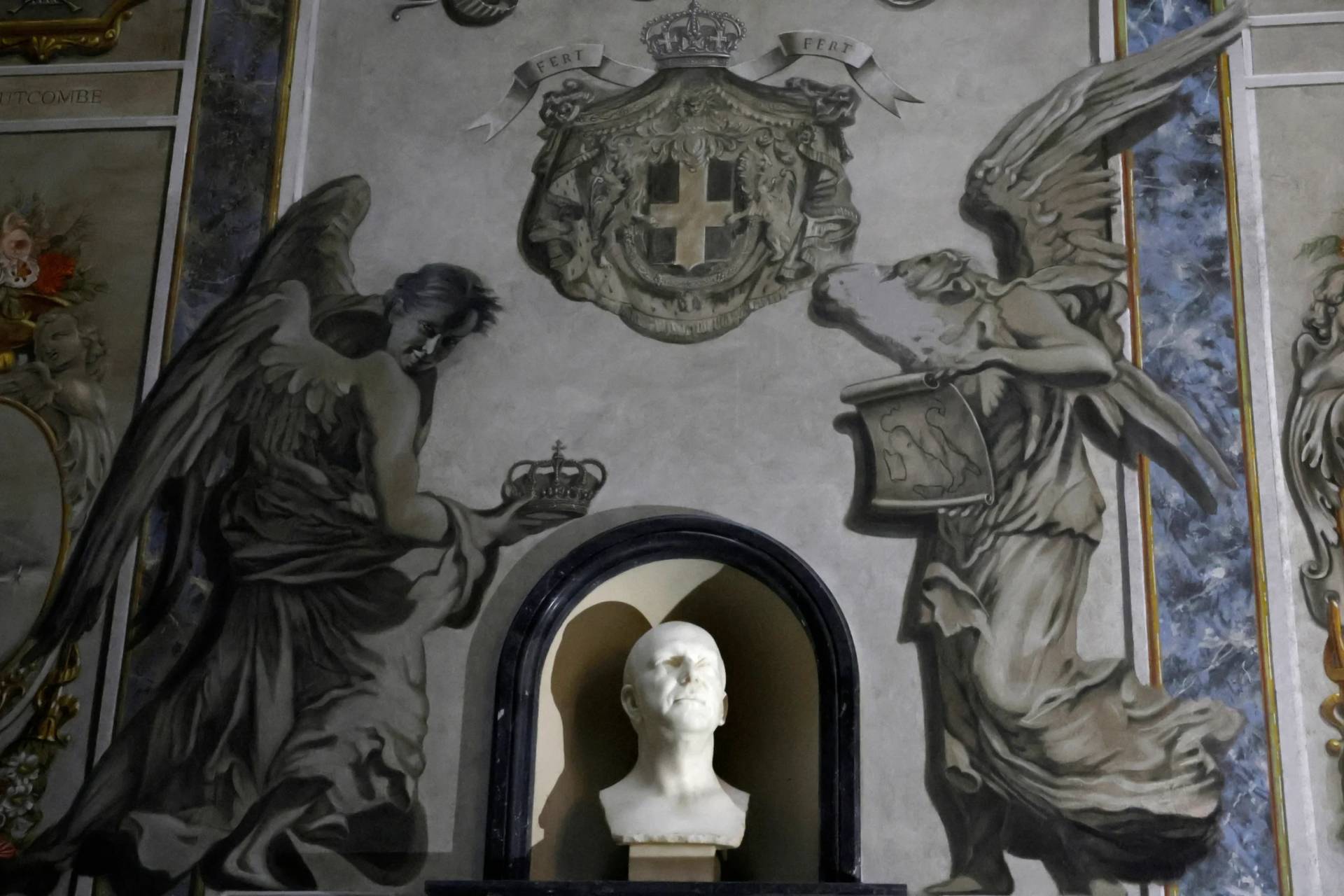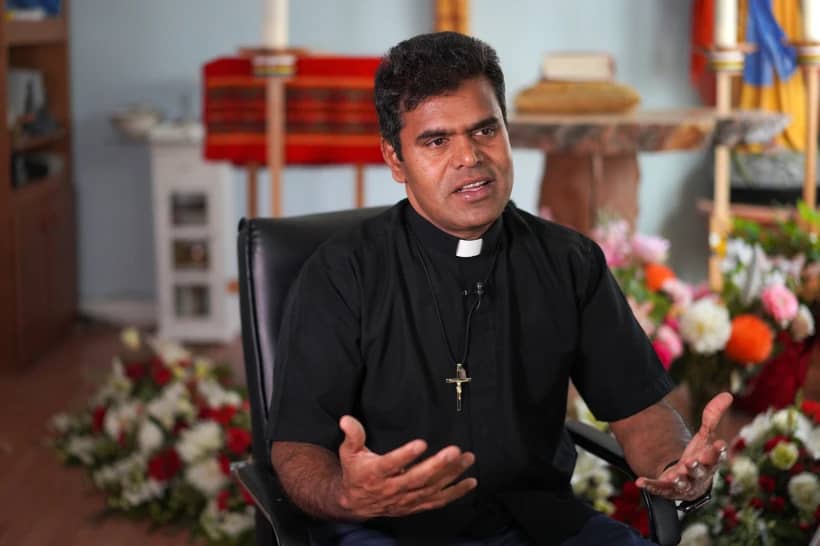SÃO PAULO, Brazil – Brazil’s President Luiz Inácio Lula da Silva decision to avoid promoting official acts on the 60th anniversary of the 1964 military coup that led to a 21-year-long dictatorship is apparently being followed by the National Conference of Bishops of Brazil (CNBB).
Amid tensions between his administration and the Armed Forces – which have mostly supported former President Jair Bolsonaro and his attempted coup in January of 2023 – Lula told his ministers at the beginning of March not to organize any ceremony (which would have an unmistakable critical tone) to mark the anniversary.
In February, Lula affirmed during an interview that he prefers not to “brood over” the consequences of the 1964 coup, something that “belongs in the past.”
The Catholic Church, which was a fundamental actor in the resistance to the regime, has traditionally commemorated the coup’s anniversaries, emphasizing the importance of the democracy and of the respect to human values.
Ten years ago, in the 50th anniversary of the coup, the CNBB released a statement in which it said “the post-dictatorship generations that they should remain active in the defense of the Rule of Law” and reaffirmed “the Church’s commitment to the defense of participative democracy and social justice for all.”
This year, however, the CNBB website didn’t mention the date. No social media posts on the episcopate’s profiles referred to the 60th anniversary of the coup, something that represents a noteworthy rupture with a tradition kept over the past few decades.
The Armed Forces took control over Brazil between March 31 and April 1 of 1964 amid a great political instability, ousting President João Goulart. Although the military promised to convoke new elections soon, that never happened. The Communist Party was declared illegal by the junta, which also took indirect control of many labor unions and social movements.
Over the years, the regime assumed a more and more violent nature and intensified the persecution of members of the opposition. In 1968, the military decreed a set of acts that suspended many constitutional rights, inaugurating years of fierce authoritarianism.
There are numerous cases of human rights violations, including thousands of illegal arrests and cases of torture. An official report informed that at least 434 people were killed by State agents or disappeared in that period, but studies point out that hundreds more should be included in that list, especially among peasants and Indigenous activists killed by the regime.
While many in the Church supported the 1964 coup and Catholic groups have not only endorsed the regime’s crusade against the left-wing but also took part in it, at some point most of the Church assumed a role in the resistance front.
Many priests, nuns, and lay Catholics were involved in political organizations and movements against the dictatorship, and some of them were arrested, tortured, or killed.
Since the regime became more flexible, at the end of the 1970s and beginning of the 1980s, the Church has always promoted events to mark the anniversaries of the coup and to recall the stories of clergy members who played central roles in the struggle against human rights violations. That’s the case of Cardinal Paulo Evaristo Arns, who was the Archbishop of São Paulo during the dictatorship’s worst years and led the clandestine production of an extensive report on torture between 1979-1985.
Father Manoel Godoy, a Theology professor and human rights advocate, says such dates must always be remembered and discussed, given that Brazil has been under the military yoke on several occasions since the 19th century and has never been able to settle the accounts with its own history.
“Of course, one can understand Lula’s stance on it. But we don’t need to agree with him,” he told Crux.
Analysts say that Lula doesn’t want to increase tensions with the Armed Forces in an already complex scenario.
Bolsonaro, a retired Army captain, hired thousands of members of the Armed Forces to work in his administration (2019-2022) and appointed generals and other officials to play central roles during his tenure.
After losing the election to Lula in 2022, he allegedly discussed with military leaders the possibility of staging a coup d’état in Brazil, according to an ongoing inquiry. Part of the commanders agreed to back him up, but others refused the idea. In 2023, one week after Lula took office, thousands of Bolsonaro supporters invaded government buildings in Brasilia, in an alleged attempt to force the military to take over. The events on Jan. 8 looked quite similar to the U.S. Jan. 6 Capitol riot.
The investigation has been showing that the Armed Forces had a high level of participation in Bolsonaro’s attempted coup. High-ranking officers may end up being imprisoned.
The military have many times celebrated the 1964 coup as one of their important accomplishments in Brazil’s history, one that led to what they call a “revolution” and protected the country from the danger of communism.
“Communism has been used in Brazil on several occasions as an excuse for political maneuvers,” Godoy said.
He said he thinks that Lula is wrong for not wanting to commemorate the 60th anniversary of the coup, because “Brazilians cannot ignore the actions of the Military in their history.”
“The dictatorship took 21 years and was terrible for the nation. The Military established several privileges for themselves that continue to exist,” he said.
The Church shouldn’t support such privileges, Godoy added. In his opinion, there’s no reason to have a military ordinariate, for instance, “given that there’s no ‘workers’ ordinariate nor ‘women’s ordinariate’.”
“The Brazilian Church is back to the sacristy. It used to be combative, but now many preach that it should only take care of the souls. Ignoring the coup’s anniversary is only natural in that context,” he said.
According to Antonio Funari, who heads the Archdiocese of São Paulo’s Justice and Peace Commission, the Church tends to have a moderate stance due to institutional concerns, “but curiously the greatest progressive leader in the world today is part of the Church, Pope Francis.”
“In our opinion, we have to keep making progress, otherwise things can go backwards again. Failing to ‘brooding over the past’ is risky,” he told Crux.
As a Catholic students’ leader in the 1960s, Funari was detained shortly after the coup in 1964 for taking part in a Paulo Freire-inspired literacy project in his city. In 1965, he was arrested again, after the students’ association in São Paulo, which he headed, organized its elections.
“The bishop of Santo André [on the outskirts of São Paulo] came to see us in jail and asked me how he could help me. I told him I needed to provide a local address to the officers,” Funari said. He was raised in a city in the countryside and came to the State capital for the elections, something he couldn’t tell the regime’s agents.
“The bishop then gave a declaration that said that I lived in a local parish,” he recalled.
Funari would be detained on two other occasions for his work as an attorney for political prisoners.
“Thankfully, I was never tortured. As a lawyer, my activities were publicly known,” he added.
In 1983, Funari was already a well-known human rights advocate and began to work with the Justice and Peace Commission. Over the years, he accompanied hundreds of cases of political prisoners and other victims of the regime.
“We have always defended that Brazil should have implanted a transitional justice instrument in order to adequately deal with the dictatorship’s legacy. We still support that idea,” he said.
In January, as part of that effort, the Justice and Peace Commission sent to Lula a letter demanding the recreation of the committee that investigates cases of people who were killed by the regime or who disappeared in those years.
“I think more and more people are aware of the need to protest and demand justice when it comes to the dictatorship. We promoted a march on Mar. 31 and it was the largest one in years. There were plenty of Catholics in it,” Funari said.















